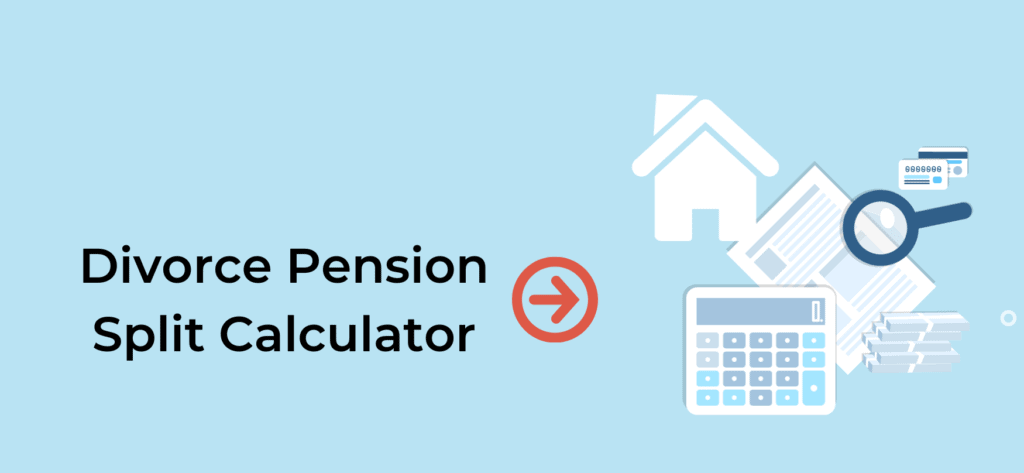
With over 70% of UK divorce cases not even discussing pensions, it might seem like something you don’t need to worry about, but by law, pensions are classed as a marital asset and should be considered as part of any financial settlement.
In fact, It’s likely that your pension/s could be your single largest asset, often worth more than the marital home. The law is anything but straight forward in this area and there are a number of considerations in how pensions are split in a divorce.
It’s important to negotiate your Divorce properly to protect yourself now and to protect against any future claims. If you’re wondering how to protect your pension in a divorce, we’ll try and explain some of the ways this can be done.
Protecting Assets from a Spouse in Divorce
If your divorce is acrimonious and you are concerned that your spouse will withhold assets or try to dispose of them unfairly, there are a number of things you can do to protect your assets in general. You will need to be prepared to act quickly and there are a number of avenues for you to consider including:
- Contacting your bank to ensure money held in joint accounts can only be taken out if you both agree
- Protecting the rights to your home if you own one or contact your landlord.
- Ensuring your income is paid into an account you have access to
- Obtaining a court order that prevents the selling, transferring or getting rid of any assets – including moving them abroad, if this would prevent a fair financial settlement
More details of how to protect your assets can be found on the Money Advice Service website .
Divorce Rights
Under UK law, assets that you have built up during your marriage are views as shared assets. The general rule is that assets should be divided equally unless there is a good reason to the contrary.
Assets that can be divided in a divorce include:
- Pensions – workplace, private pensions and any additional State pension allowance (but not the State Pension itself)
- Property
- Business and Investments
- Cash, Savings & Insurance policies
- Physical Assets i.e. cars, jewellery, art etc
Use our Divorce Pension Split Calculator to work out what might be a fair settlement
Ways to Protect your Pension in a Divorce
1. Obtain a Financial Settlement
Getting a divorce or dissolution in England and Wales does not end your ability to make a financial claim against your ex (or them against you) and there’s no time limit for making a financial claim.
A divorce on its own does not provide a legally-binding financial settlement. Even if you and your Spouse mutually agree a financial split or not to make a claim on the other’s finances you need to obtain a court order to make this a binding contract.
It is possible to agree on a financial settlement and have it approved by the courts through mediation and via a solicitor. But unless you have a binding court order setting out the details of your financial arrangement you leave yourself open to a future claim on your assets including your pensions from your ex-spouse
2. Agree on a Fair settlement
There have been numerous high profile court cases where ex-spouses have returned to court to get a larger share of assets after their original divorce. In almost all of these cases, the argument is that the original settlement did not represent a fair split of the marital assets. You can save yourself the future hassle and expense by agreeing on an equitable settlement the first time around.
Use our Divorce Pension Split Calculator to work out what might be a fair settlement

3. Consider Pension Offsetting
Pension Values should be taken into account in a divorce, but Pensions do not necessarily need to be split. Pension Offsetting allows one partner to take the pension/s whilst the other partner keeps assets to an equivalent value.
It’s important to note that Pension values are not seen as directly equivalent to other asset values i.e. a house or cash assets. Courts can take into account the fact that they are not accessible until you are 55, generally carry investment risk (unless it’s a defined benefit pension), may be taxable when you withdraw them and may have costs associated with accessing or running them. So if you have £100,000 in a pension, you will not necessarily have to give £100,000 in home equity or cash to the other person.
If you’d like to understand more about Pension Offsetting and how it works check out our blog on What Happens to Pensions in a Divorce, where we also explain Pension Sharing Orders and Pension Earmarking.
4. Understand the True Value of your Pensions
If you have multiple pensions you should check if they come with any valuable guarantees such as protected retirement age, a guaranteed annuity rate, tax-free cash etc. If you do have pensions that have valuable assets that would be lost if you transfer them, you can negotiate for other assets or pensions to be given up instead.
If you have a Defined Benefit Pension (aka a Final Salary Pension), this is an incredibly valuable asset and its benefits often cannot be replicated with its transfer value – you should seek advice to understand the true value of your pension and then talk to a solicitor to discuss your options to protect it.
5. Negotiate your position
Under UK law, the starting point for dividing assets in a divorce is a 50/50 split. But that doesn’t mean that every Divorce will end up being split that way. The focus is on a fair and equitable split.
Courts look at a number of factors that can impact the share of any assets in a divorce. These are set out by the Matrimonial Causes Act 1973 and you should be aware of any of these considerations and be prepared to use them in your divorce negotiations:
- Children
The financial needs of the children and other factors that may affect their future wellbeing are always considered paramount to any financial settlement in a divorce.
If you are or have been the main caregiver to your children, then your ability to save into a pension now may be impacted.
- The financial needs of you and your spouse
Financial settlements in Divorce are usually needs-based. This can be based on the standard of living you have previously enjoyed during your marriage but it can also take into account any caregiver responsibilities.
When looking at future needs, consider your retirement income needs as a single person as well as any state pension entitlement (for both you and your spouse).
- The length of the marriage and your respective ages
Under UK law, pensions built up before the marriage can be taken into consideration, but if it has only been a short marriage it is unlikely that the court will award a full share of these. There is no hard and fast rule on how long you need to be married before assets are treated as a matrimonial asset, but generally, for marriages between 12-15 or less, there will be a dilution of the amount to be split. The longer a couple has been married the less likely that assets brought to the marriage will be protected and treated as assets to be separated out from the matrimonial assets
Your age will be taken into account if you’re looking at splitting your pensions, especially if there is a significant age gap between the spouses. The closer you are to retirement, the less time you have to prepare and save. The younger you are, the more time you have, it will be argued, to remedy your financial situation.
- The current earnings of each party and your future earning potential;
This is an important one and some of it comes back to the Financial needs of you and your spouse. If you can prove that your spouse has significant earning potential to ‘bounce back’ from the divorce and get themselves into a similar financial standing without splitting the pensions, the court may award you a larger share of the financial assets.
Business owners can pay up to £40,000 into their pension every year, direct from their business and receive tax relief, so if your partner has the means and the ability to do this, you could protect your pension this way.
If you do not have the earning potential to build or rebuild your retirement fund, this needs to be taken into account.
- Health issues affecting either you, your spouse or any children;
If you, your spouse or your children have health issues that might affect your ability to work now, or in the future, they will need to be taken into consideration. This can include chronic conditions that may force you into early retirement.
- The assets of each party including pensions;
Whilst Pensions built up before the marriage can be considered if you built up the bulk of your pension prior to the marriage, you should ask for this to be taken into consideration, especially if it was a short marriage.
- The financial and non-financial contributions (such as caring for children and running the house) that each of you has made to the marriage;
If one of you has brought significantly more to the marriage than the other, then this may be taken into account.
Do not assume that if you have been the ‘breadwinner’ whilst your spouse has stayed home to look after the children that you will be seen as having brought more to the table, the courts place an equal value on this.
6. Hidden Assets in a Divorce – are they discoverable?
If you’re looking to protect your pension, there are legitimate ways to do so. Divorce requires that there is full and frank disclosure of all finances. If you or your spouse intentionally try to hide assets in a divorce you could leave yourself open to future legal action and your divorce settlement could be renegotiated to reflect this. It could end up being an extremely costly mistake and one that sees you spend a large portion of your wealth on solicitors and court costs.
You can engage a financial adviser to understand the value of the pensions you have built up and what they were worth when you married. Once you understand this then it’s possible to negotiate a fair settlement through mediation or have a solicitor help you.
With that in mind, it’s worth checking whether you have any old or lost pensions that you might have forgotten about or dismissed as worthless. If it comes out later that you had assets you have not disclosed, it could go against you.
Free Advice for Divorce
As financial advisors, we are unable to offer legal advice for pensions in divorce, although we can help you transfer part or all of your spouse’s pension once you have agreed on a financial settlement.
The Pension Advisory Service
If you have any questions about divorce and pensions you can get in touch with The Pensions Advisory Service for free on 0800 011 3797 or start a live web chat on their website
Relate
There’s lots of helpful information on the Relate website for those going through a divorce.
Advicenow.org
Advicenow is an independent, not-for-profit website, run by the charity Law for Life: the Foundation for Public Legal Education. They provide accurate, practical information on rights and the law in England and Wales.
Download their useful guides as a free PDF using the links below:
Survival Guide to sorting out your finances in Divorce
A survival guide to divorce or dissolution of a civil partnership
A survival guide to using Family Mediation after a break up
The Law Society
If you need help finding a suitable solicitor, The Law Society offers a free Find a Solicitor service.
Advocate
Advocate is a charity that finds free legal assistance from volunteer barristers. You can find out more about them and apply for help here.
Mediation
Search the Family Mediation Council register to find a mediator near you.



